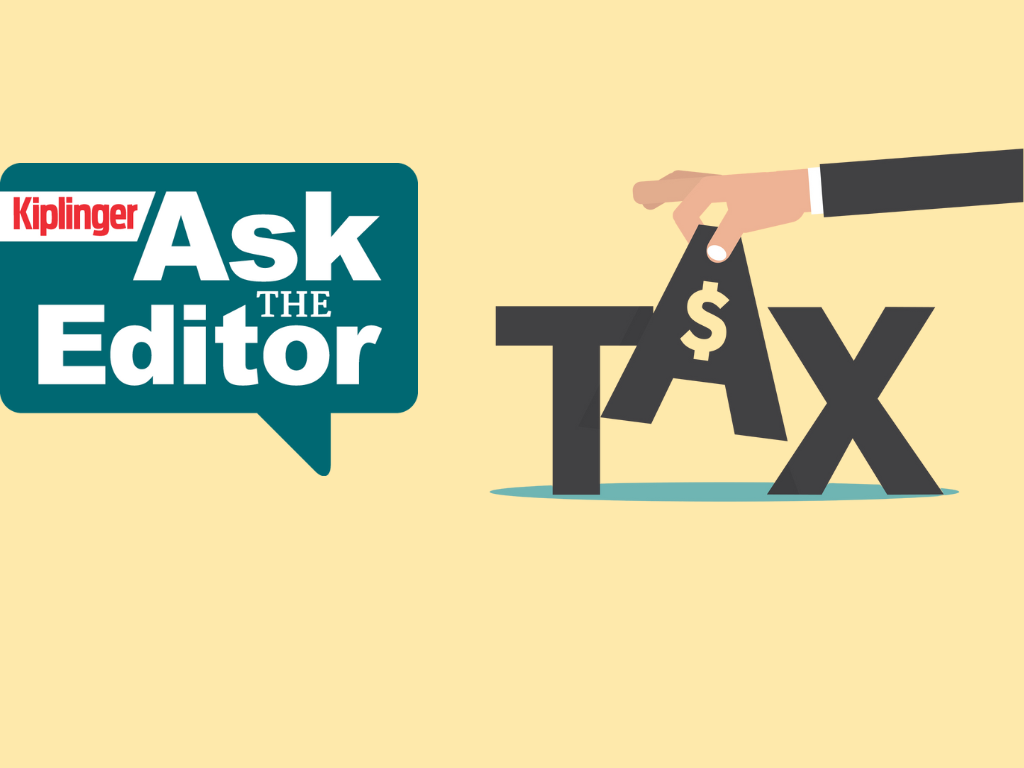TaxAct: Plans, Pricing and Key Features Explained
A breakdown of TaxAct’s plans, pricing and features — and who the software is best suited for this tax season.

Profit and prosper with the best of Kiplinger's advice on investing, taxes, retirement, personal finance and much more. Delivered daily. Enter your email in the box and click Sign Me Up.
You are now subscribed
Your newsletter sign-up was successful
Want to add more newsletters?
TaxAct has been part of the online tax filing landscape for more than two decades, positioning itself as a lower-cost alternative to larger competitors such as TurboTax and H&R Block. While it may not offer the same level of visual polish or built-in guidance as some rivals, it provides the core tools many filers need to prepare and submit a return.
Founded in 1998, TaxAct has supported the filing of more than 105 million tax returns. Over the years, the platform has focused on straightforward pricing and tiered plans that allow users to choose a version based on the complexity of their finances.
From basic W-2 income to freelance work, homeownership or investment income, TaxAct offers several filing options designed to handle a range of tax scenarios. Here’s a closer look at how it's pricing works, what features are included and who may want to consider using it this tax season.
From just $107.88 $24.99 for Kiplinger Personal Finance
Become a smarter, better informed investor. Subscribe from just $107.88 $24.99, plus get up to 4 Special Issues

Sign up for Kiplinger’s Free Newsletters
Profit and prosper with the best of expert advice on investing, taxes, retirement, personal finance and more - straight to your e-mail.
Profit and prosper with the best of expert advice - straight to your e-mail.
How much does TaxAct cost?
TaxAct stands out with competitive pricing that undercuts popular tax software providers like TurboTax and H&R Block. TaxAct offers five filing tiers, each tailored to different tax situations.
Here’s a breakdown of TaxAct’s 2026 plans:
Plan | Federal Filing | Best For | Includes |
Free Federal | $0 (State filing costs $39.99) | W-2 employees, students, unemployment filers | Basic returns with qualifying income and deductions. Includes Child Tax Credit, education credits and unemployment income. |
Deluxe Home & Family | $29.99 (State filing costs $39.99) | Homeowners, families | All Free features, plus deductions for mortgage interest, childcare expenses and health savings account (HSA). |
Premier Investments | $49.99 (State filing costs $39.99) | Investors, landlords, home sellers | All Deluxe features, plus support for investment income, crypto transactions, rental property and real estate transactions. |
Self-Employed Entrepreneur | $74.99 (State filing costs $39.99) | Freelancers, contractors, small business owners | All Premier features, plus tools for reporting 1099 income, managing business deductions and support for sole proprietors or LLCs. |
TaxAct does run promotions throughout tax season. For example, AAA members can receive 25% off both federal and state tax filings for consumer and business tax products.
TaxAct's features and benefits
TaxAct offers several helpful features designed to make the tax filing process smoother. If you need additional time to file, you can submit a tax extension directly through the platform — no extra forms or third-party tools are required.
TaxAct also backs its software with a 100% Accuracy Guarantee, promising to cover any difference in your tax liability, up to $100,000, if an error results from using their system.
Additionally, the Maximum Refund Guarantee ensures that if you find a larger refund using a different provider with the same information, TaxAct will refund the cost of your software.
While TaxAct has fewer upsells than larger competitors, it does offer live assistance. Xpert Assist gives you access to live help from a tax expert for an additional $25. This feature includes unlimited questions and the option to request a quick review of your return before filing. This type of support is good for those filers who want a second set of eyes without committing to full-service tax preparation.
How to file your taxes with TaxAct

You can choose between two main filing methods: TaxAct Online or TaxAct Download.
With the online version, you create an account and complete your return directly in a web browser. Your data is saved securely in the cloud, and you can access your return from any internet-connected device. Each online account supports one return.
For those who prefer to work offline or need to file for multiple people, the TaxAct Desktop software is a better fit. It allows you to save returns locally to your computer or flash drive and supports preparing and printing multiple tax returns, making it ideal for households with more than one taxpayer.
Filing with TaxAct follows a familiar step-by-step process, much like other tax software. The platform guides you through a series of questions about your income, deductions, and life events to help populate the correct tax forms and identify potential credits.
As you enter information, a real-time tracker updates your estimated refund or balance due, giving you immediate insight into how your input affect your return.
What to know before filing with TaxAct
TaxAct is a solid choice for those seeking a no-frills, cost-effective filing experience. One of its advantages is transparent pricing with minimal upselling.
While other platforms often nudge users toward more expensive tiers or add-ons, TaxAct largely avoids that, keeping things straightforward for users who know what they need.
Compared to TurboTax, TaxAct remains a more budget-friendly solution, particularly for those with more complex filing needs like freelancers, gig workers, and investors.
Is TaxAct worth it?
TaxAct is a good option for filers who want reliable tax prep tools without paying premium prices. While it may not offer all the bells and whistles of more expensive platforms, it delivers a user-friendly experience, essential features and flexible plan options.
The platform’s clear pricing, minimal upselling and support for complex tax situations make it a smart pick for those who prioritize value over flashy extras. Just keep in mind that state filing costs can add up, and live expert help comes at an additional charge. If you’re comfortable navigating your taxes with a bit of guidance, TaxAct is worth a closer look this tax season.
related content
Profit and prosper with the best of Kiplinger's advice on investing, taxes, retirement, personal finance and much more. Delivered daily. Enter your email in the box and click Sign Me Up.

Carla Ayers joined Kiplinger in 2024 as the eCommerce and Personal Finance Editor. Her professional background spans both commercial and residential real estate, enriching her writing with firsthand industry insights.
Carla has worked as a personal finance and real estate writer for Rocket Mortgage, Inman and other industry publications.
She is passionate about making complex real estate and financial topics accessible to all readers. Dedicated to transparency and clarity, her ultimate goal is to help her audience make informed and confident decisions in their financial pursuits.
-
 Thinking of Switching Phone Carriers? Do These 8 Things First
Thinking of Switching Phone Carriers? Do These 8 Things FirstSwitching carriers is easier than ever, but overlooking the fine print could cost you. Here’s what to check before you make the move.
-
 Samsung Galaxy S26 Ultra: What to Know Before You Upgrade
Samsung Galaxy S26 Ultra: What to Know Before You UpgradeThe Galaxy S26 Ultra brings new features and strong launch deals, but whether it’s worth upgrading depends on what you already own.
-
 Nasdaq Soars Ahead of Nvidia Earnings: Stock Market Today
Nasdaq Soars Ahead of Nvidia Earnings: Stock Market TodayWednesday's risk-on session was sparked by strong gains in tech stocks and several crypto-related names.
-
 I'm a Wealth Adviser: This Strategy Can Slash Your Taxes on Large Stock or Property Sales
I'm a Wealth Adviser: This Strategy Can Slash Your Taxes on Large Stock or Property SalesSelling a major asset can result in huge capital gains taxes, but combining direct indexing with tax-loss harvesting can significantly reduce your tax bill.
-
 Is Life Insurance Taxable When It's Paid Out?
Is Life Insurance Taxable When It's Paid Out?You received a big check from your loved one's life insurance policy. Will the IRS be expecting a check from you now?
-
 Ask the Editor, February 20: Questions on Tax Breaks for Caregivers
Ask the Editor, February 20: Questions on Tax Breaks for CaregiversAsk the Editor In this week's Ask the Editor Q&A, Joy Taylor answers questions on tax breaks for caregivers
-
 I'm a Financial Planner: This Is How You Can Legally Divorce the IRS for the Rest of Your Life
I'm a Financial Planner: This Is How You Can Legally Divorce the IRS for the Rest of Your LifeWith some careful planning focused on the standard deduction, retirees who have large sums in tax-deferred accounts can avoid unpleasant tax bills and even part ways with the IRS for good.
-
 9 Ways the Wealthy Waste Thousands in Taxes: A Checklist for What Not to Miss
9 Ways the Wealthy Waste Thousands in Taxes: A Checklist for What Not to MissThe tax code contains plenty of legitimate ways for the wealthy and business owners to cut taxes. Use this checklist to minimize taxes and stay compliant.
-
 I'm an Opportunity Zone Pro: This Is How to Deliver Roth-Like Tax-Free Growth (Without Contribution Limits)
I'm an Opportunity Zone Pro: This Is How to Deliver Roth-Like Tax-Free Growth (Without Contribution Limits)Investors who combine Roth IRAs, the gold standard of tax-free savings, with qualified opportunity funds could enjoy decades of tax-free growth.
-
 I'm a Real Estate Investing Pro: This Is How to Use 1031 Exchanges to Scale Up Your Real Estate Empire
I'm a Real Estate Investing Pro: This Is How to Use 1031 Exchanges to Scale Up Your Real Estate EmpireSmall rental properties can be excellent investments, but you can use 1031 exchanges to transition to commercial real estate for bigger wealth-building.
-
 Ask the Editor, February 13: More Questions on IRAs
Ask the Editor, February 13: More Questions on IRAsAsk the Editor In this week's Ask the Editor Q&A, Joy Taylor answers questions on IRAs